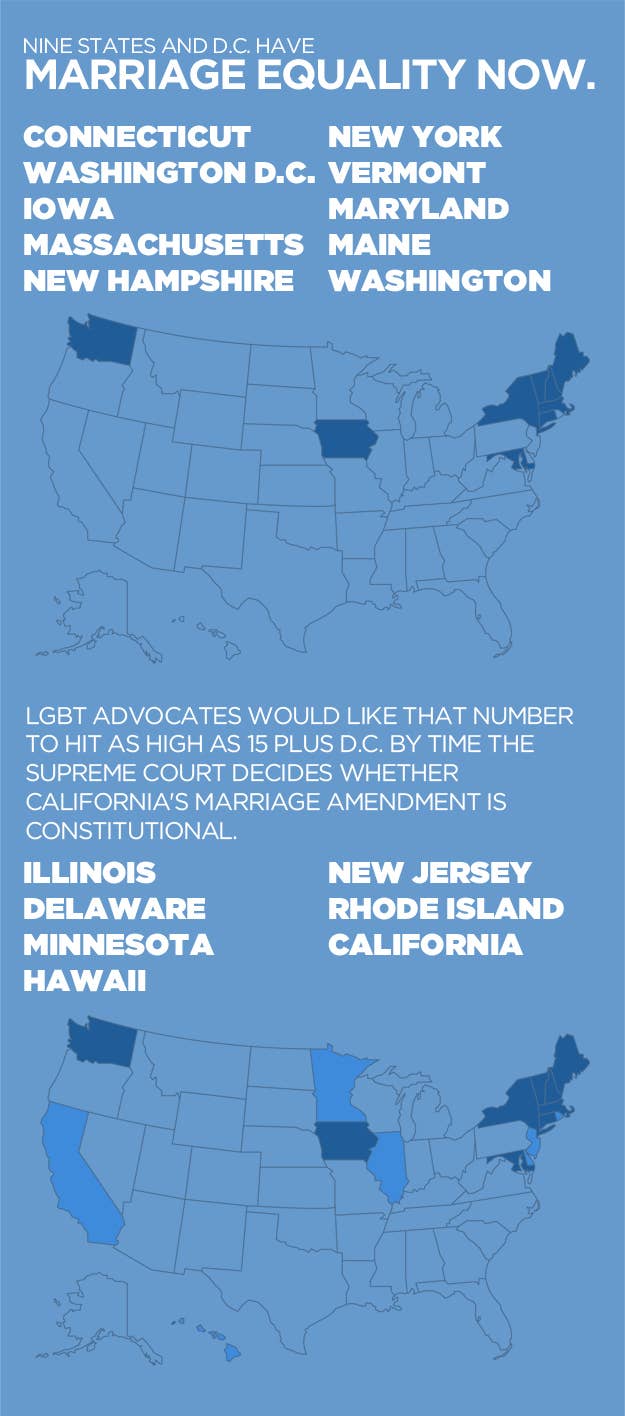
WASHINGTON — The Supreme Court is taking up two cases related to the marriage rights of gay and lesbian couples, three states' voters approved marriage equality at the polls in November, and conservative former House Speaker Newt Gingrich said this past week he can accept the "reality" of marriage between same-sex couples as a "legal document issued by the state."
In his comments to The Huffington Post, Gingrich said, "[T]he reality is going to be that in a number of American states — and it will be more after 2014 — gay relationships will be legal, period." Coming off the victories in Maryland, Maine, and Washington — as well as the defeat of an amendment to ban same-sex couples from marrying in Minnesota — there are several states where advocates are looking to move on marriage equality in the coming months.
As Freedom to Marry's national campaign director, Marc Solomon, told BuzzFeed, "It's crucially important during the next six months to build on the powerful momentum of the four ballot victories and win additional states, creating the most favorable climate possible for the U.S. Supreme Court to rule our way."
Here's a look at the seven states — or, depending on the Supreme Court, more — where advocates hope to see marriage equality in the first six months of 2013.
1. Illinois
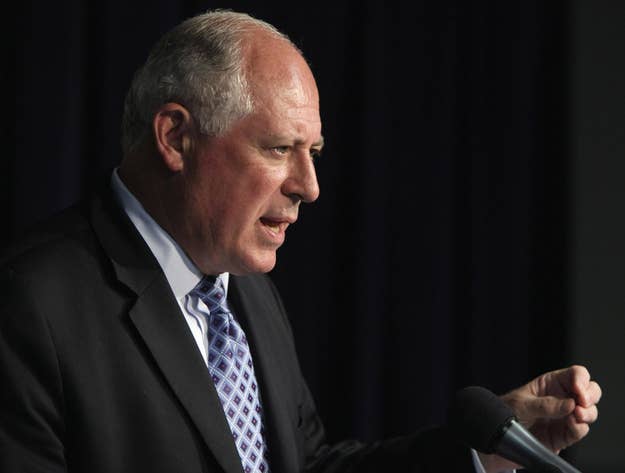
Illinois Gov. Pat Quinn supports marriage equality, and advocates are looking to push a bill in the first month of 2013. "Public sentiment is moving fast on this," state Sen. Heather Steans told the Chicago Tribune. “It’s just a wave now. It’s moving very quickly."
Anticipating the fight, the "Coalition to Protect Children and Marriage" was unveiled by opponents of the bill Dec. 18, and it includes the Illinois Family Institute, Eagle Forum of Illinois, Abstinence and Marriage Partnership, Illinois Citizens for Life PAC, Lake County Right to Life, Concerned Christian Americans, and Family-Pac.
The state already has civil unions, and two ongoing lawsuits, brought by Lambda Legal and the American Civil Liberties Union, challenge whether the differential treatment is constitutional under the Illinois Constitution.
2. Minnesota
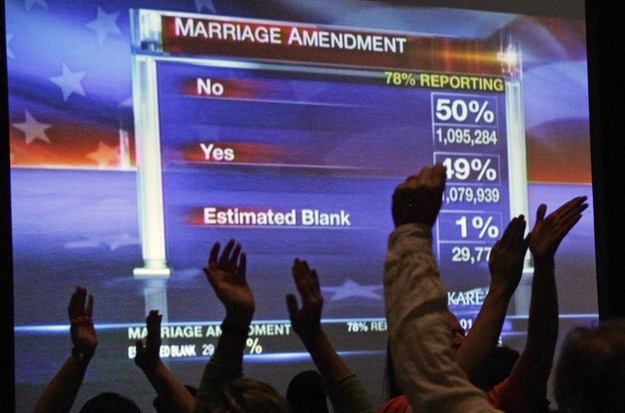
Coming off the defeat of a marriage amendment in November, several prominent state officials have declared their support for moving forward with marriage equality in the state.
Richard Carlbom, who served as the campaign manager for Minnesotans United for All Families that worked against the amendment, told the Star Tribune this past week, "Our intention is to make sure gay and lesbian couples have the freedom to marry after the 2013 legislative session."
Sen. John Marty and Rep. Alice Hausman, according to the Pioneer Press "already have said they intend to introduce immediately a bill to legalize gay marriage when the Legislature convenes Jan. 8." Additionally, Gov. Mark Dayton supports marriage equality.
3. Rhode Island
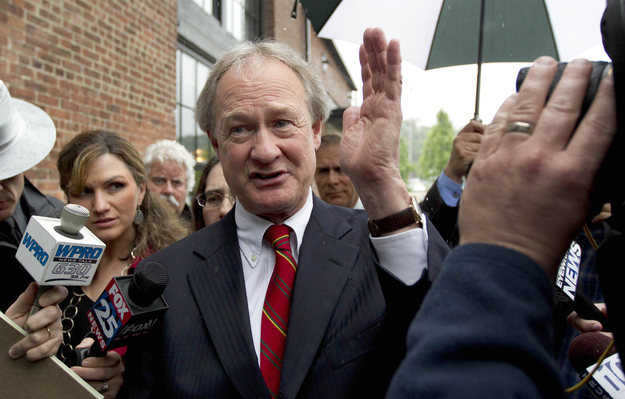
The state, which has civil unions currently, is the last remaining state in New England without marriage equality. This past week, Senate President M. Teresa Paiva Weed committed to allowing a vote on the issue in the next year.
In a response from Marriage Equality Rhode Island, the group stated, "We are both excited and grateful that the Senate President has decided to schedule a Judiciary Committee vote on marriage equality in 2013, following the House’s expected passage of this historic civil rights legislation. We will continue to actively reach out to legislators on both sides of the aisle and grow our broad coalition of supporters in the House and Senate."
Gov. Lincoln Chafee is a supporter of marriage equality, and earlier this year took executive action to recognize same-sex couples' marriages performed out of the state.
4. Delaware
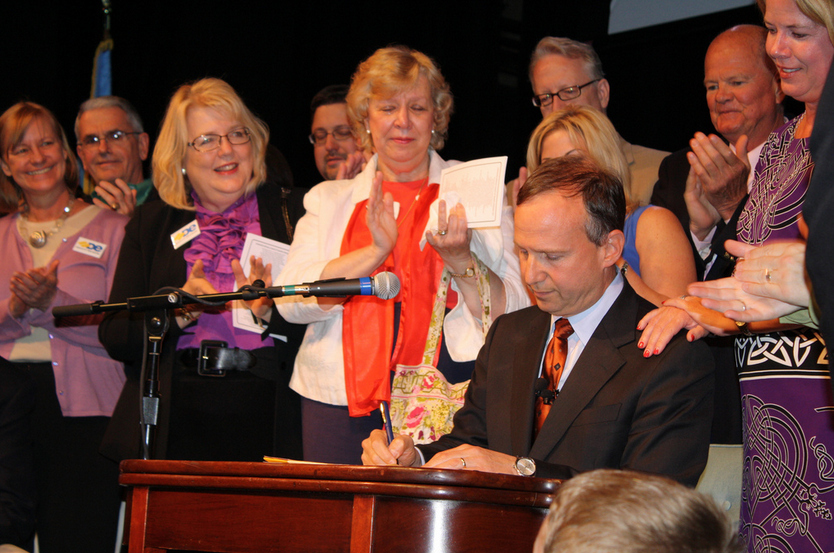
Delaware Gov. Jack Markell, coming off the 2011 passage of civil unions in his state has made clear that he wants Delaware on board the marriage equality list — telling The Huffington Post as early as August that the issue "probably" would come up in 2013 — and it's expected to happen.
5. Hawaii
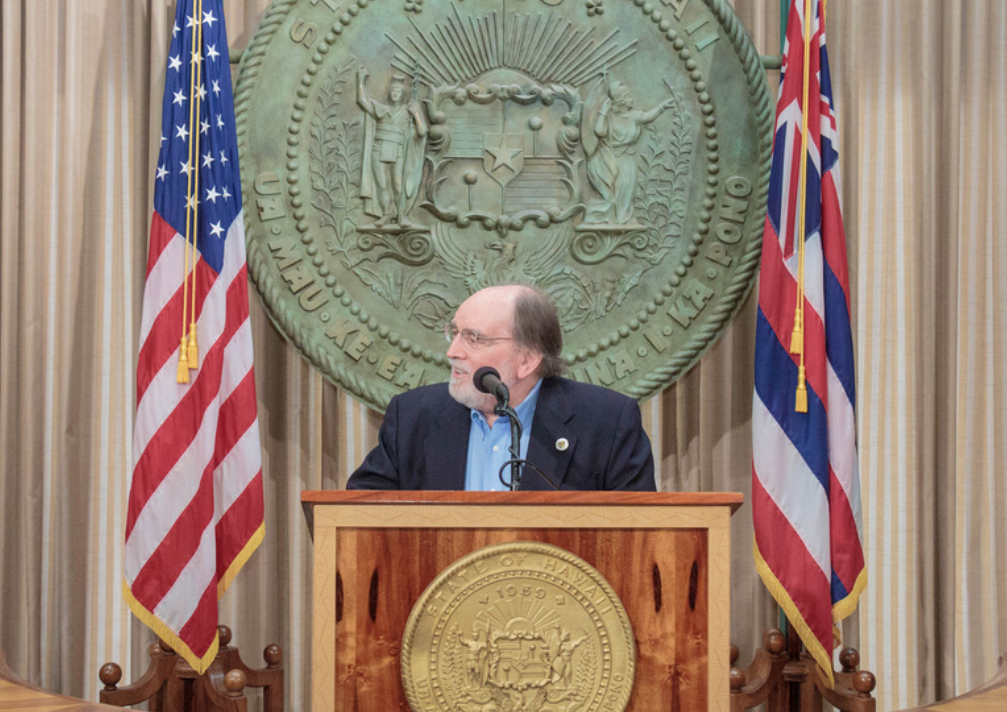
Although Hawaii has been in the marriage equality fight since the early 1990s, the state's advocates are still pushing for marriage equality there.
This August, a court decided that the state’s ban on same-sex couples' marriages is constitutional. The court found that changes to the law should be made by lawmakers or voters, not the courts.
Gov. Neil Abercrombie is a staunch marriage-equality supporter, having refused to defend the state's current law in the court challenge. "My obligation as governor is to support equality under law. This is inequality, and I will not defend it," he said at the time.
6. New Jersey
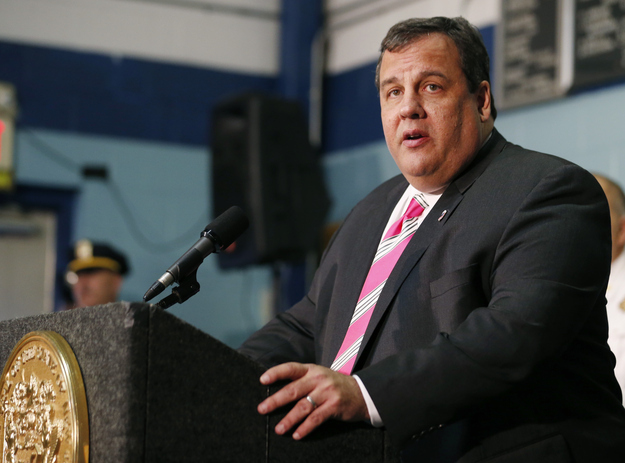
New Jersey Gov. Chris Christie has been in the spotlight recently, having won moderate and Democratic support for his handling of Hurricane Sandy, but the Republican governor vetoed the legislature-passed marriage equality bill at the start of 2012.
Garden State Equality leaders and others have been working to secure the support in the legislature to override Christie's veto, and the group has until the end of this session to do so. Earlier this month, the state's senate president, Steven Sweeney, said he opposed putting marriage equality up to a referendum vote of the people.
"I do not believe you put civil rights on the ballot, period," he said. "It is the job of elected officials to ensure that everyone is provided equal protection and equal rights under the law. We should not hide from that responsibility. We should embrace it."
7. California
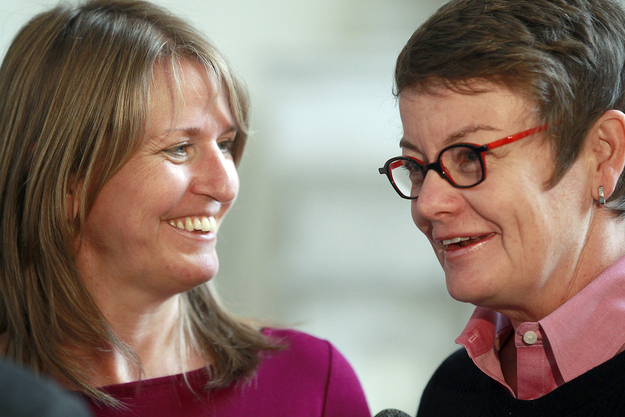
Sandy Stier (left) and Kris Perry are the lead plaintiffs in the lawsuit challenging California's Proposition 8 that will be heard by the Supreme Court this spring. Gov. Jerry Brown, both now and previously as attorney general, has refused to defend the constitutionality of the law.
A narrow victory — either dismissing the appeal because there is no appropriate party appealing the decision or a decision by the court maintaining that California's marriage ban is unconstitutional because the vote took away a preexisting right of same-sex couples to marry — would mean Stier and Perry could marry but the ruling wouldn't change marriage laws outside California.
A broad decision guaranteeing same-sex couples the right to marry, however, also is possible. Depending on the reasoning, that could change the marriage-equality map across the country in a far more dramatic way — up to and including marriage equality for same-sex couples across the country.
As unforgettably detailed by Matt Stopera in the state of Washington earlier this month, if and when any of these states do change the marriage equality map, couples' long-awaited weddings will be the result.

